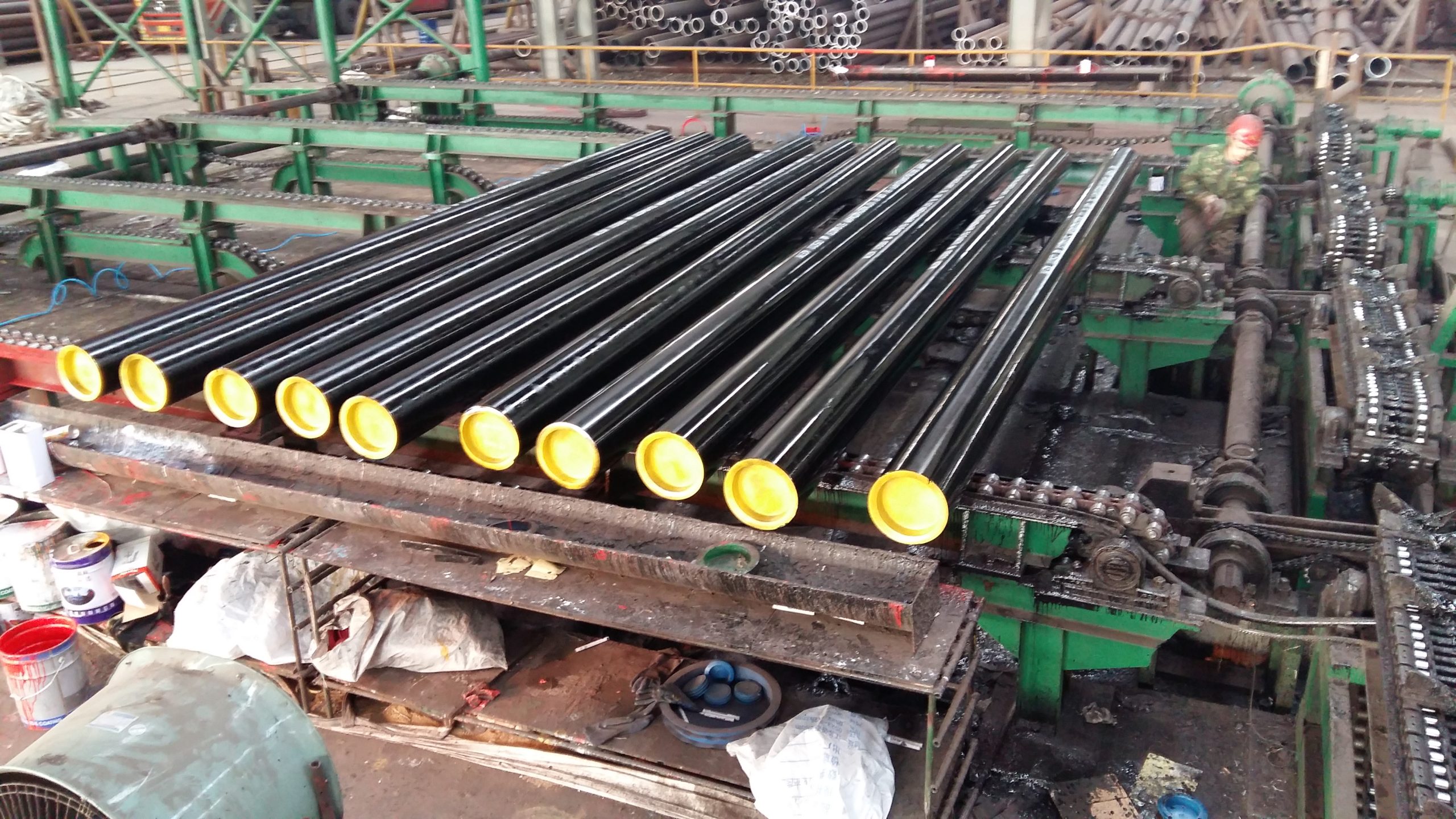Inhoudsopgave
Voordelen van het gebruik van naadloze koolstofstalen buizen in toepassingen voor olieveldbehuizingen
Olieveldmantelbuizen zijn cruciale componenten in de olie- en gasindustrie en dienen als beschermende barrières voor boorputten tijdens boorwerkzaamheden. Van de verschillende materialen die worden gebruikt voor behuizingsbuizen vallen naadloze koolstofstalen buizen op vanwege hun talrijke voordelen, vooral bij toepassingen in olieveldbehuizingen.
Hoe boorbuizen voor olieputten de operationele efficiëntie verbeteren
Concluderend: buizen voor het boren van olieputten spelen een cruciale rol bij het verbeteren van de operationele efficiëntie in alle stadia van de olie- en gasproductie. Van boor- en interventieactiviteiten tot boorputintegriteit op lange termijn: deze pijpen vormen essentiële kanalen voor de winning van koolwaterstoffen. Hun duurzaamheid, betrouwbaarheid en voortdurende technologische vooruitgang dragen bij aan de optimalisatie van de productiesnelheden en de economische levensvatbaarheid van olie- en gasactiviteiten. Naarmate de industrie evolueert, zullen buizenstelsels onmisbare componenten blijven van de infrastructuur van olievelden, waarbij ze de mondiale vraag naar energie ondersteunen en tegelijkertijd de duurzame ontwikkeling van olie- en gasbronnen garanderen.
Oil well drilling tubing pipe plays a crucial role in enhancing operational efficiency within the oil and gas industry. These pipes, which are commonly made of carbon seamless steel, are integral components of oilfield casing systems. From facilitating drilling operations to ensuring the integrity of oil wells, tubing pipes contribute significantly to the smooth functioning of oil extraction processes.
In the exploration and extraction of oil, drilling operations demand precision and reliability. Tubing pipes are designed to withstand high pressures and harsh environmental conditions encountered during drilling. Their seamless construction ensures structural integrity, minimizing the risk of leaks or failures that could disrupt operations. By providing a conduit for the extraction of oil from the reservoir to the surface, tubing pipes facilitate the efficient flow of hydrocarbons, optimizing production rates.
Furthermore, tubing pipes serve as conduits for various well intervention activities aimed at enhancing oil recovery and maintaining well integrity. Through methods such as hydraulic fracturing and well stimulation, operators can increase the productivity of oil wells. Tubing pipes enable the injection of fluids and Chemicals into the wellbore, facilitating these processes and allowing for precise control over production variables.
In addition to their role during drilling and intervention activities, tubing pipes are essential for the long-term integrity of oil wells. Once drilling is complete, casing pipes are installed to support the wellbore and prevent collapse. Tubing pipes are then inserted inside the casing, providing a conduit for the extraction of oil and gas. This dual-layered system enhances structural stability, mitigates the risk of casing deformation, and ensures the efficient production of hydrocarbons over the lifespan of the well.
The durability and reliability of tubing pipes are paramount considerations for operators seeking to maximize operational efficiency. Carbon seamless steel, commonly used in their construction, offers exceptional strength and resistance to corrosion, prolonging the service life of tubing pipes in demanding environments. This durability reduces the need for frequent replacements or repairs, minimizing downtime and optimizing production uptime.
Moreover, advancements in tubing pipe technology continue to drive improvements in operational efficiency within the oil and gas industry. Innovations such as corrosion-resistant alloys and enhanced manufacturing processes enhance the performance and longevity of tubing pipes, allowing operators to extract oil from increasingly challenging reservoirs. Additionally, the development of intelligent tubing systems equipped with Sensors and monitoring capabilities enables real-time Data Acquisition and analysis, empowering operators to make informed decisions and optimize production processes.

In conclusion, oil well drilling tubing pipes play a vital role in enhancing operational efficiency across all stages of oil and gas production. From drilling and intervention activities to long-term well integrity, these pipes provide essential conduits for the extraction of hydrocarbons. Their durability, reliability, and continuous technological advancements contribute to the optimization of production rates and the economic viability of oil and gas operations. As the industry evolves, tubing pipes will remain indispensable components of oilfield infrastructure, supporting the global demand for energy while ensuring the sustainable development of oil and gas resources.

